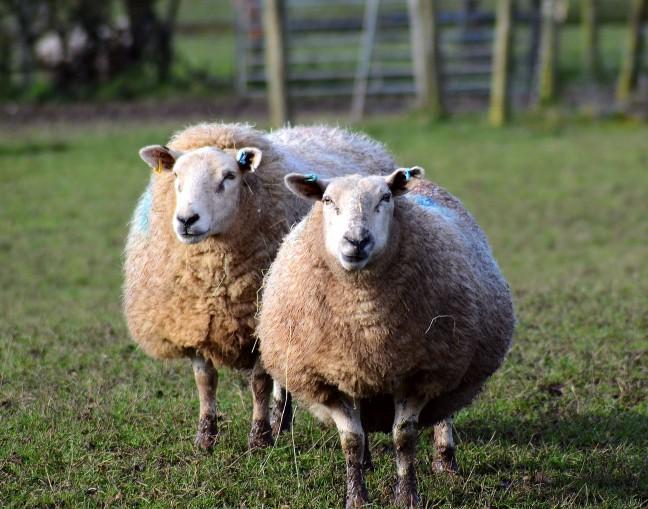University of Wisconsin’s dairy sheep research program, the only one of its kind in North America, will end in the fall due to budget cuts.
After nearly $3 million in cuts to the College of Agricultural and Life Sciences, closing the dairy sheep program will lead to $150,000 in savings, Associate Dean Richard Straub said. This comes as a result of UW’s $250 million budget cuts.
$250 million cut to UW System remains as Assembly passes state budget
The program makes UW unique from every other university in North America, David Thomas, UW animal science professor and creator of the dairy sheep program at UW’s Spooner Agricultural Research Station said.
“This is the only dairy sheep research program in all of North America,” Thomas said. “It’s the only one in existence.”
Thomas, who started the program in 1993 along with Yves Berger, said he is retiring in the upcoming year and his position will not be replaced. Thomas said he thinks the sheep program would remain in place if he was not retiring.
Straub said the College of Agriculture and Life Sciences does not have the money to replace Thomas. The decision to get end the program was difficult to make, Straub said, because all of the work done by Spooner faculty and staff was “outstanding.”
“Because of the budget cuts and strategic priorities, we don’t have the resources to replace that position,” Straub said. “So given the fact that there’s not a faculty member who will use the sheep, we can no longer support maintaining the flock.”
Thomas said the program focused on developing new technology for the emerging dairy sheep industry in North America. He said he was inspired to start this program because there are virtually no producers making sheep cheese products in the country.
The few producers who were delving into this business in the U.S. had no research-based information, Thomas said. He said his goal was to be an informational resource to businesses.
Straub said there will be more staff and program cuts, but could not specify because the university is still working to identify the permanent long-term cuts that will be made to the budget. He said the College of Agricultural and Life Sciences is expecting an overall $6 million to $7 million impact.
Thomas said while he understands cuts are necessary, he is saddened by the loss of the informational resource he pioneered.
“I think that this is a real loss for the developing dairy sheep industry in the United States, that they will no longer have any place, relatively local, to go to for new information,” Thomas said. “But in the same light, I understand that the university and the colleges and the departments are having to make some very difficult decisions in the current budget climate.”













